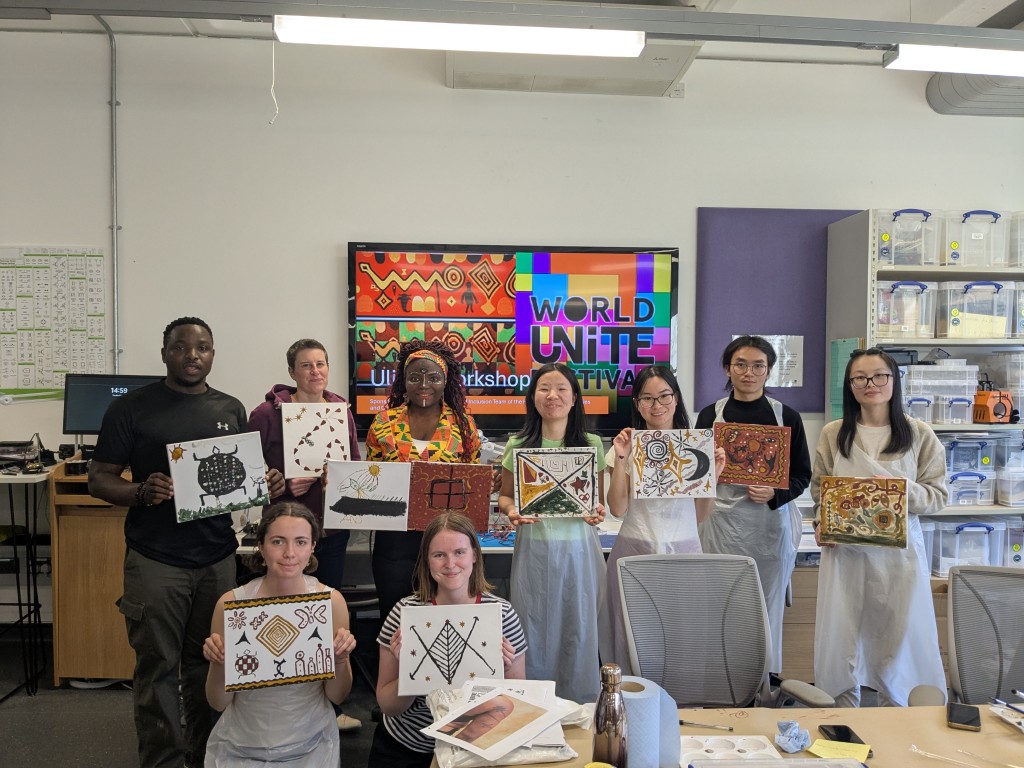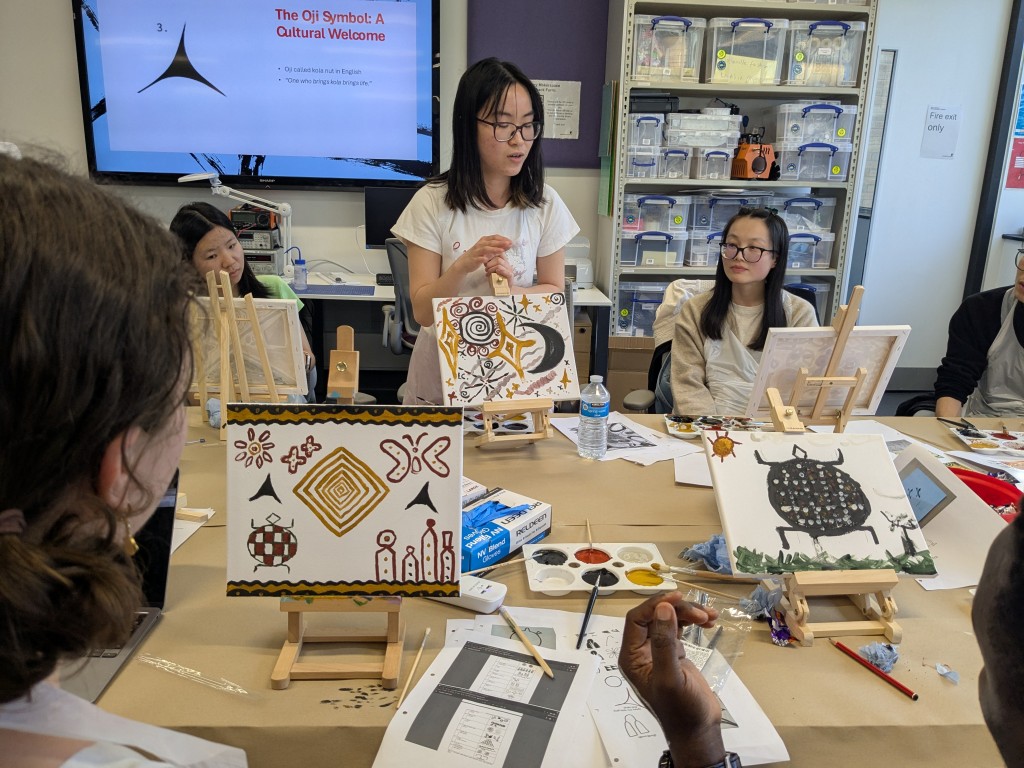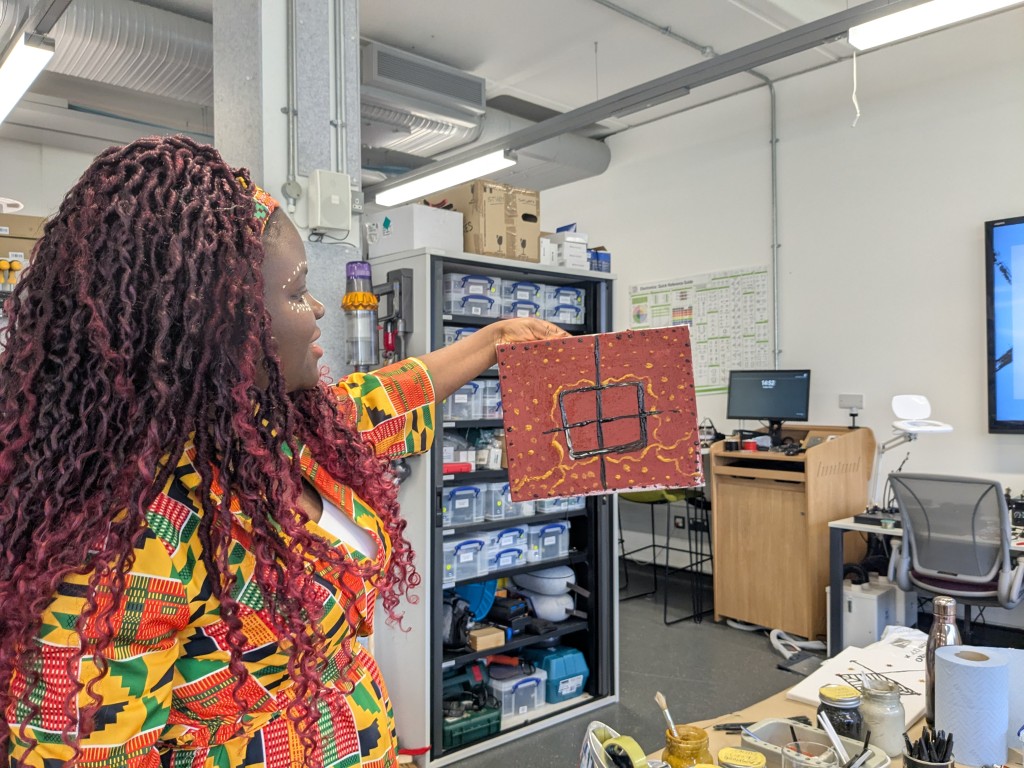Reflection on Uli Art Workshop

Group photo of the uli artworks
https://transformingeditogether.yarn.community/storage/Group_Uli_Photo_1747125428.jpg
It was the first time Uli art workshop was held at the University of Leeds, travelling across continents and taking its place in a space of learning far from home. Uli is an Igbo visual art form decorated on bodies and painted on mud walls. It is art, yes, but also memory, belief, and myth—believed to be handed down by Ala, the goddess of the earth, to the first woman who then passed it on, like a sacred thread, to generations after her.
But like many indigenous traditions, Uli suffered under the weight of colonialism. With the coming of Christianity and modernization, it was dismissed as fetish. Mud walls gave way to cement, and body art was replaced with foundations and lipsticks. However, contemporary artists and fashion designers are leading the way to reviving the art. It was this very spirit of revival that birthed our workshop.
The Uli Art Workshop, supported by the Equity, Diversity and Inclusion Award project under the Arts, Humanities, and Culture team at the University of Leeds, was held on the 27th of March 2025, from 1:00 PM to 3:00 PM at the Edward Boyles Makerspace.
There were ten of us in the hub for the workshop on that day. Ten different stories, from different backgrounds and ten ways of seeing the world. I loved the fact that participants challenged themselves to do something new. I remembered Emmanuel Erhijodo saying: “I think I am going to try body painting too!” He painted circles and dots on the back of his hands and explained, “This shows the cycle of life.” And somehow, in that moment, his hands looked like a living story, pulsing with tradition.
It was also interesting to see how participants linked Uli art to different traditions. looking at participants’ works that day made me feel something deeper than words – that art can be a way of stitching different cultures with lines.

Uli art showcase
https://transformingeditogether.yarn.community/storage/Art_showcase_1747125540.jpg

Showcasing the mirror motif - Ugogbe
https://transformingeditogether.yarn.community/storage/Gloria_1_1747125502.jpg
The day had many highlights. But my most personal moment was when I painted my face and then on canvas, I painted the mirror motif—a symbol of reflection. It was my way of saying: I am here. I am both the observer and the story. I am the one who remembers.
The final moments of the workshop were tender and powerful. Participants shared their works. And I saw clearly—Uli had leapt beyond Igbo land. It had woven itself into new hearts, new hands.
And then, just as participants began to depart, Fangfang Hong said to me, “I really enjoyed the workshop. I now know something about the Igbos I never knew before. I would really love to take part in something like this again.” Other feedback from the participants made me realise that the workshop was not just an experience. It was a rekindling; the movement against forgetting and the remembering of the lines that connect us all.
Written by:
Gloria Adaeze Adichie
PhD Candidate, School of Philosophy Religion and History of Sciences
University of Leeds